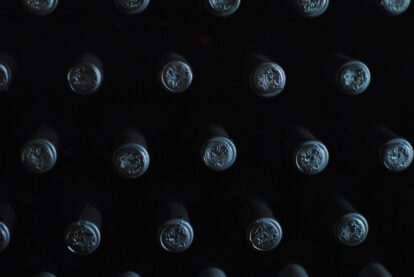

The internet is widely in agreement that 19 Crimes has become something of a ‘poster child‘ for wine marketing for a new generation of wine drinkers. Its presence in unconventional contexts (UFC), an imaginative approach to intrinsics (coffin aged wine) and AR storytelling (living wine labels) are just some of the well documented ways 19 Crimes have made wine exciting, especially for consumers outside of Australia, and led to a quadrupling in growth from 2016-2022.
But whilst stories of resistance and rebellion underpin the brand (including the recently announced collaboration with Snoop), less has been said about what outside of the category context makes this distinctive, and why 19 Crimes’ take on rebellion works so well outside of Australia. A big part of the answer is that there is a cultural strategy at play that qualifies, authenticates and invigorates the kind of rebellion 19 Crimes stands for. It’s a strategy rooted in the evolving idea of Australian-ness in popular culture, especially in cultural contexts outside of Australia itself.
For British audiences, well-worn ideas of Australian-ness embodied by brands tend to reference a laid-back attitude to life (Fosters), the beach and its accompanying aesthetic (Bondi Sands), and outdoor activities and sports (Billabong). So far, so familiar. But against this increasingly stock take on Australian as an idea, brands like Aesop, Black Milk Clothing and MAARA have started to evolve and diversify what the idea of Australia means and looks like for British consumers.
And more importantly for 19 Crimes, culture has been putting in the hard yards: witness the unstoppable rise in later-life of Brighton-based Nick Cave, the endlessly recommended (and genuinely excellent) Mr Inbetween, and the frontier brutality of Territory (helpfully translated for Brits by the Guardian as ‘Succession in the outback’). Popular culture has opened up space for a wine brand to put the spotlight on Australia’s convict past and narratives of rebellion, grit and insubordination, a twist on the nation’s founding story and a cultural strategy more relevant, distinctive and compelling than a fresh take on terroir or a reframing of Yarra Valley would have been.
Successful cultural strategy – strategy that builds awareness, cuts through the noise, and grows brands – works by identifying a cultural space or idea that is underrepresented, ownable, and full of potential. Australia’s shadow side is exactly that, and the cultural equity of rebellion which 19 Crimes embodies so effectively is made all the more powerful by being anchored to emerging aspects of Australian culture, history and identity.
All of which brings us back to Snoop. It’s not the first time 19 Crimes has ventured beyond a specifically Australian take on defiance and rebellion (I’m fairly sure Dracula wasn’t an Aussie). The move contemporises but also risks conventionalising the rebellion narrative, removing it from the dust-red roots from which it grew so imaginatively and successfully. Snoop is indeed the Tha Doggfather, but he’s also an American national treasure. I expect, alongside a diversification strategy taking the brand into other alcohol categories, it will succeed nonetheless. Still, no harm in giving Nick Cave a call.
Words: Gareth Lewis Joint Managing Director, Space Doctors